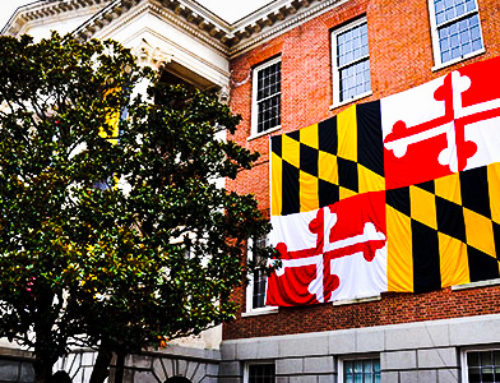View by Topic
Recent Articles
-
Mandatory GHG Disclosures in Maryland Real Estate ContractsSaturday, April 5th, 2025
-
NYC Building Electrification Ruling is Interesting But Not a Game ChangerSaturday, March 29th, 2025
-
Greenpeace Ordered to Pay $667M in Blow to ActivismSaturday, March 22nd, 2025
-
The Most Consequential Day of Environmental Deregulation in American HistorySaturday, March 15th, 2025
-
States Challenge Validity of New York’s Climate Change Superfund ActSaturday, March 8th, 2025
View by Month/Year
“Green Building Law Update” Headlines
Recent Articles & News from
Stuart Kaplow’s blog
at GreenBuildingLawUpdate.com
- Mandatory GHG Disclosures in Maryland Real Estate Contracts April 6, 2025
- NYC Building Electrification Ruling is Interesting But Not a Game Changer March 30, 2025
- Greenpeace Ordered to Pay $667M in Legal Blow to Environmental Activism March 23, 2025
- The Most Consequential Day of Environmental Deregulation in American History March 16, 2025
Subscribe to the Green Building Law Update!
Stuart Kaplow brings his expertise and extensive experience to the table with his unique digital publication, "Green Building Law Update". Subscribers receive regular updates to keep them informed about important issues surrounding Environmental Law, Green Building & Real Estate Law, as well as the emerging demand for Environmental Social Governance (ESG).
Get fresh content through the lense of Stuart Kaplow's cutting-edge expertise, innovative commentary and insider perspective. Don't miss another issue! Subscribe below.
Legislative Report 2003: A Review of Real Estate Legislation Enacted by the Maryland General Assembly
The 2003 session of the Maryland General Assembly adjourned at midnight on Monday, April 7th. After consideration of 1,959 bills over 90 days before sine die, the legislature passed a total of 629 bills (252 Senate bills and 377 House bills).
During the first gubernatorial bill signing on April 8th, the Governor signed 52 bills. Future bill signings are scheduled for April 22, May 13, and May 22.
This is a review of select legislation enacted by the General Assembly that impacts upon real estate, including significant environmental and related business legislation. Of note, in a session when much of the agenda was dominated by fiscal matters and slot machines (technically called video lottery terminals), there were a modest number of bills enacted directly impacting on real estate.
Legislation has been compiled in this review within the following subject headings: Environmental, Courts, Business, Fiscal Matters, and Real Estate.
Environmental
HB 1051 modifies the Maryland Department of Environment’s (MDE) Brownfields initiative by mirroring a provision of recently enacted amendment to the federal Superfund law providing that a property owner is not a “responsible person” under the state Controlled Hazardous Substances law solely by reason of contamination from a contiguous property. Other provisions of the bill alter the Voluntary Cleanup Program to provide that a determination by MDE that it has “no further requirements” for a property under the Brownfields program is transferable to subsequent purchasers, to reduce the application for participation in the program under certain conditions, etc. The bill also establishes the Environmental Restoration and Development Task Force to review recent changes in federal law relating to Brownfields examining the consequences of expanding the state program to incorporate current federal liability protections.
Companion proposals make changes in noise control efforts, when SB 320/ HB 174 encourage local governments to consider compliance with state or local “noise pollution” standards before acting on variance requests or changes in zoning. The bills require MDE to submit proposed revisions in noise regulations to a reconstituted Environmental Noise Advisory Council.
SB 393/ HB 715 expand existing criminal and civil penalties for violations of certain sediment and erosion control, stormwater management, and tidal wetlands programs administered by MDE. Other provisions authorize the courts to order restoration of areas unlawfully disturbed.
SB 95 amended current penalty provisions related to asbestos removal violations removing the requirement that a civil penalty for an asbestos removal violation must have been previously assessed before a criminal sanction can apply. The imprisonment option for a first offense was deleted from the law, but the bill provides for a $20,000 maximum fine.
If signed by the Governor, SB 394/ HB 747 establish minimum energy efficiency standards for nine household and commercial products sold in Maryland after March 1, 2005 or installed in Maryland after January 1, 2006. Minimum energy efficiency standards will apply to traffic lights, ceiling fans, torchiere lights, unit heaters, some types of low voltage transformers, illuminated exit signs, large packaged air-conditioning equipment, and some commercial refrigeration units. Ceiling fan light kits and commercial clothes washers would not have to meet the standards until 2007 and 2008.
In an effort to ensure the safe operation of the two hazardous liquid pipelines in Maryland, the General Assembly passedHB 794 that enhances the reporting requirements and inspection guidelines for the pipelines. The legislation requires the Public Service Commission to establish and adopt methods and best practices for intrastate pipeline facilities.
In response to weaknesses in existing law brought to light by last year’s “frankenfish” incident with the unusually resilient northern snakehead fish, SB 287 authorizes the Department of Natural Resources to issue regulations that prohibit the importation, possession or introduction of nonnative aquatic organisms into Maryland waters.
Courts
SB 4 and HB 18, identical bills that gained final legislative approval, increase the maximum amount of small claims suits in District Court from $2,500 to $5,000 and grant concurrent jurisdiction to the District Court and Circuit Court over civil cases where the amount in controversy exceeds $5,000. The legislation also increases from $1,000 to $2,500 the amount in District Court civil actions below which there are no formal pleadings, and increases from $2,500 to $5,000 the amount above which an appeal must be heard based on the District Court record rather than de novo.
A heavily amended SB 455 allows the state and local jurisdictions to authorize the use of speed monitoring systems by ordinance or resolution in residential neighborhoods and school zones. Signs must indicate that speed cameras are in use and warnings are required for 45 days after the 1st speed camera is placed in a jurisdiction. A portion of the penalties are to go to a new state Homeland Security Fund.
Also approved, SB 193 will ensure that the length of time that a yellow light is lit at an intersection with a red light camera is in accordance with State Highway Administration regulations.
SB 68 allows a person who was sexually abused as a child to file a civil suit against the abuser at any time before the victim’s 25th birthday, a 4 year extension of the current statute of limitations.
Business
On April 8th the Governor signed HB 201 requiring a holder of property subject to the abandoned property law to provide written notice, within a certain time frame and before filing the required report, to the property owner, informing the owner that the holder is in possession of the property and that the property will be considered abandoned unless the owner responds within 30 days.
HB 801/ SB 221 allow nonresident commercial real estate brokers and nonresident salespersons working for nonresident brokers to engage in transactions in the State under certain circumstances. The bill defines commercial real estate as: real property improved by five or more single family units; improved and unimproved real property zoned for commercial, industrial, or nonresidential use by the local zoning authority; and unimproved real property zoned for improvement as multifamily units by the local zoning authority. Commercial real estate does not mean: property zoned for agricultural use; or single-family units, including a condominium or co-op unit for sale or lease, or otherwise conveyed or to be conveyed on a single basis. A nonresident commercial real estate broker may be approved by the Maryland Real Estate Commission to engage in a transaction in the State if the nonresident broker: provides brokerage services through a broker licensed in the State; enters into a written agreement with the broker licensed in the State specifying the terms of cooperation and compensation, and including a statement allocating responsibility for the transaction, and a statement that the nonresident broker will adhere to the laws of the State; makes written application with the commission; and submits a temporary license fee of $45. The commission must issue a temporary license to a nonresident real estate broker that complies with the above requirements if the broker is licensed in a jurisdiction that allows a Maryland broker to obtain a license under similar circumstances.
SB 530 requires the Real Estate Commission to accept as evidence of completion of a continuing education course the certificate of completion, a photocopy of the certificate, an electronic mail certificate, or a photocopy of an electronic mail certificate.
SB 618/ HB 620 alter the purposes of community legacy projects by including the financing of neighborhood intervention projects to rehabilitate, demolish, reconstruct or reuse properties located in stable neighborhoods, but limits the amount of financial assistance that may be awarded for neighborhood intervention projects to $500,000.
SB 339/ HB 640 prohibit a person from providing debt management services to certain consumers unless the person is licensed by the Commissioner of Financial Regulation or is exempt from licensing under the Act.
SB 160/ HB 117 clarify the return of specific cancelled checks to account holders, as well as options for and format of returned cancelled check facsimiles instead of original cancelled checks.
Fiscal Matters
The $22.4 billion state budget bill, HB 40, for fiscal 2004 passed with reductions of $264.4 million from the Governor’s original proposal. Increasing General Fund spending by less than 1%, the budget bill was balanced by reductions to the Governor’s allowances, transfers to the General Fund, and by tax changes. The General Assembly did not approve revenue from slot machines to bring the budget bill into balance.
HB 935, the Budget Reconciliation and Financing Act of 2003 assists in balancing the budget for fiscal year 2003 and 2004 by reallocating revenues to the General Fund, increasing fees, reducing certain aid amounts, and making certain tax changes. Among its provisions, the bill increases the business annual report filing fee from $100 to $300, and caps the total commercial Maryland Heritage Structure Rehabilitation tax credits at $23 million from February 1 through December 1, 2003, and at $15 million for calendar year 2004.
If not vetoed by the Governor, HB 753 raises $135.6 in new taxes by imposing a 10% corporate income tax surcharge for 2003 through 2005, a 2% insurance premium tax on HMOs, etc.
Of significance to many in the commercial real estate field,SB 120/ HB 19 seeking to impose transfer and recordation tax on the transfer of controlling interests in entities that own real estate failed.
Real Estate
HB 1030/ SB 655 provide an alternative method for redemption of a ground lease by a tenant, when there has been no contact with the landlord for three years, through submission of documentation to the State Department of Assessments and Taxation. Redemption is a statutorily created right by which a tenant may obtain fee simple title to property by paying a fee to the landowner. The bill does not apply to ground leases whose purpose is not primarily residential.
HB 1054/ SB 678 provide that within 45 days after a loan has been paid in full with no further commitment required by the borrower or holder of the mortgage or deed of trust: (1) the required release of a mortgage or deed of trust on a borrower’s principal residence must be executed and the required notices about the release must be sent; or (2) the release must be sent in a recordable form with a notice of where to record it and the recordation price. A borrower who is a prevailing party in an action for the delivery of a release is entitled to costs and expenses in connection with bringing the action, including reasonable attorney’s fees.
Under the SB 321, a “ground rent” is a residential lease or sublease in effect on or after October 1, 2003 that has an initial term of 99 years renewable forever and creates a leasehold estate subject to the payment of an annual lease amount. A holder of a ground rent that is at least six months in arrears is entitled to reimbursement for expenses, up to $500, incurred in collecting the past due ground rent and in complying with the required notice provision for ejectment actions, including: title abstract and examination fees; judgment report fees; photocopying and postage fees; and attorney’s fees. Upon filing a complaint for ejectment, the holder is entitled to reasonable preparation and filing expenses incurred, including: filing fees and court costs; expenses incurred for service of process; additional fees for a title abstract and examination, up to $300; attorney’s fees, up to $700; and taxes, including interest and penalties paid by the plaintiff or holder.
SB 258 authorizes an additional meeting of the council of unit owners of a condominium to be called if the number of persons present, in person or by proxy, at a properly called meeting is insufficient to constitute a quorum and: the original meeting’s notice stated that an additional meeting might be called; and the unit owners present call for an additional meeting by majority vote. Fifteen days’ notice of the time, place, and purpose of the additional meeting must be delivered or mailed to each unit owner at the address shown on the council of unit owners’ roster.
HB 722 requires a local government to report to MDE any known property that is noncompliant with the Reduction of Lead Risk in Housing Program.
HB 424 adds distressed property to the types of properties for which the Mayor and City Council of Baltimore City may file for condemnation and immediate taking, and grants exclusive original civil jurisdiction to the District Court for those proceedings where the estimated value of the property does not exceed $25,000. Baltimore City would be required to deposit with the District Court the amount of money estimated by a licensed appraiser to be the fair market value of the distressed property. If the court decides that the value of distressed property is less than the sum of the public charges, city and State taxes, and other assessments, the city is entitled to a judgment against the owner of the distressed property for the difference. If the court vests title to the distressed property in the city, the city may name as titleholder a public or quasi-public agency to hold title. The bill defines a distressed property as a parcel of real property that is subject to a tax lien or liens with a lien or liens to value ratio equal to or greater than 15% as determined by the City Department of Housing and Community Development and has deteriorated to the extent that the dwelling unit or other structure constitutes a serious and growing menace to the public health, safety, and welfare and is subject to an expired violation notice and order to correct the deteriorated conditions or is subject to a lien or liens in an amount greater than $1,000 for work done by the Department of Housing and Community Development.
SB 112 provides exemptions from recordation and transfer taxes on the transfer of a conservation easement co-held by a land trust and governmental entity and on the transfer of a fee simple title to a land trust if the trust files a declaration of intent to convey the title to a governmental entity within 18 months of the declaration. Current law provides an exemption from recordation and transfer taxes on transfers of property to the United States, the State, an agency of the State, or a political subdivision of the State. However, while as a matter of courtesy, the clerks of the circuit court currently do not assess these taxes the current law does not specifically provide an exemption from recordation and transfer taxes where property is transferred to a property held jointly by the State and another entity or when a land trust intends to transfer a property to a governmental entity.
The General Assembly passed several amendments to the Maryland Agricultural Land Preservation Foundation program, including SB 626/ HB 805 that provides certain uses, including home occupations, may be allowed on land subject to agricultural preservation easements. HB 91 allows the continuation of natural gas mining in Allegany and Garrett counties on property subject to an agricultural preservation easement.
SB 204 authorizes the Baltimore County Board of License Commissioners to transfer three licenses of any class of beer, wine, and liquor (on-sale) retail license with two of the transferred licenses to be converted into Class B (TRD) restaurant beer, wine, and liquor (on-sale) licenses of which one must be issued only for a location in the Towson Revitalization District, subject to several qualifications and conditions, including a minimum capital investment requirement of $500,000 and minimum seating capacity of 100 persons. One of those two licenses is intended to be issued for a location in Towson Commons. The third transferred license must be converted into a Class B (SB) service bar beer, wine, and liquor (on-sale) license for a location in the Towson Revitalization District, subject to a minimum capital investment requirement of $300,000 and a minimum seating requirement of 100 persons that has table service.
HB 992/ SB 718 provides that, with limited exceptions, property may not be transferred on the assessment books or records until all public taxes, assessments, and charges “currently due and owed” (rather than “due”) on the property have been paid to the treasurer, tax collector, or director of finance of the county in which the property is assessed.
Effective only in Baltimore City, HB 1049 mandates that if a foreclosure sale of an interest in land under a mortgage or a deed of trust is ratified, the person making the sale must cause to be recorded in the land records, within 90 days after it is issued, a final order of ratification if the vendor and purchaser are the same and no deed is recorded. There are approximately 5,350 foreclosures in Baltimore City annually, but only a small percentage of which would require recordation of a final order under this bill.
Effective only in Charles County, HB 616 is interesting in that it authorizes establishment of a Homeowners Association Commission with the authority to hear and resolve disputes between a homeowners association and a homeowner regarding the enforcement of the recorded covenants or restrictions of the homeowners association by providing alternative dispute resolution services including binding arbitration. The bill is modeled after theMontgomery County Commission on Common Ownership Communities.
HB 1148 increases, from $750 to $2,000, the maximum development excise tax that can be imposed to finance public school facilities or improvements in Caroline County. In 1990 the Court of Appeals held that counties must obtain explicit authority from the General Assembly before imposing impact fees. The General Assembly has granted code home rule counties the authority under Article 25A to impose development impact fees and development excise taxes. The General Assembly has not passed a uniform authorization applying to the other counties; therefore, these counties need specific statutory authorization before imposing an impact fee.
Note, the information contained in this legislative review is gleaned from writings of the Maryland Department of Legislative Services.









